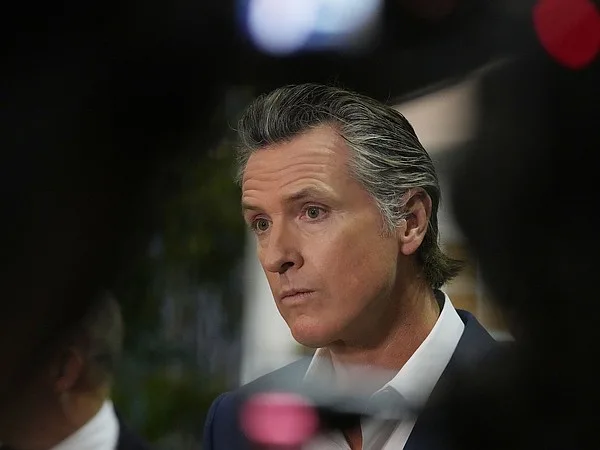
Gov. Gavin Newsom in 2020 put out a news release when he agreed to establish a task force to recommend how California should repair its significant role in the country’s enslavement of descendants from Africa and the decades of discrimination that have ensued since emancipation. For a governor who craves the camera, an announcement by news release can signal a degree of distance from the subject.
It is a pattern that appears to hold true to this day.
As members of the California Legislative Black Caucus are preparing a historic package of reparations legislation to introduce next year, they also have yet to meet with Newsom on what they are doing.
In recent months, the governor has found time in his schedule to fly to Israel to discuss the war in Gaza with Prime Minister Benjamin Netanyahu. He has traveled to China to discuss climate change with President Xi Jinping.
He found time to appear on Fox News and discuss reparations with Sean Hannity of Fox News. But not yet with the California Legislative Black Caucus?
It has been more than four months since the final report was issued by the Task Force to Study and Develop Reparation Proposals for African Americans. The governor decided to open perhaps the most serious of American moral issues. A hands-off approach in Sacramento can’t possibly help bring closure.
“We have not sat down with him yet,” said state Sen. Steven Bradford, D-Gardena, a member of the reparations task force and the Black Legislative Caucus. That moment is expected to happen some time next month, he said.
This caucus isn’t sitting on its hands in the meantime. Its members are preparing to make reparations a key issue in Sacramento for the remainder of Newsom’s term.
Bradford did provide a signal that the history of the movement may shape its future. “Reparations in its original creation was not about cash,” he said. “It was about land. So I want to see how we can help African Americans who are descendants of chattel slavery who’ve never owned homes here in California or anywhere in this country become homeowners.”
In the relatively little commentary Newsom has made on the subject, he seems well aware of polling that suggests that a majority of Californians are not supportive of cash payments to slave descendants.
In his June interview with Hannity, Newsom said, “I put out a statement saying reparations is more than just about money. That implies a deeper rationalization of what is achievable, what’s reasonable and what is right, and that’s the balance that we’ll try to advance.”
If the deeper rationalization of reparations that Newsom has in mind would avoid the concept of compensation entirely, it appears that Bradford has something else in mind.
“If you are talking about cash payments right now, no, I don’t see that as the first feasible step,” said Bradford. “I think first is standing up the infrastructure. How do you administer and how do you determine and identify those individuals who are eligible for reparations?”
This is only a 12-member caucus. It takes 21 senators to approve a bill, and 41 in the Assembly. “Our goal,” said Bradford, “is 21-41 and a governor’s signature.””
Reparations is a legacy issue, both for the 2024 California Legislature and a governor heading into the final stretch of his second term. It is not too late for Newsom to take a hands-on approach and see through what he has started.
There was once a time in California that a baby born from a woman in slavery was a slave as well. Our hands are not clean. The need to repair is real.

